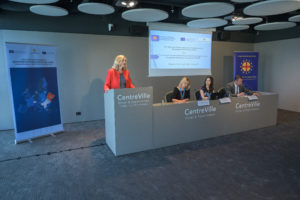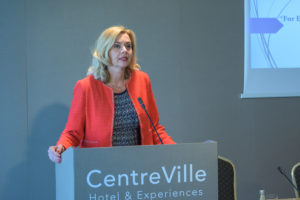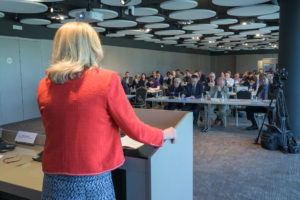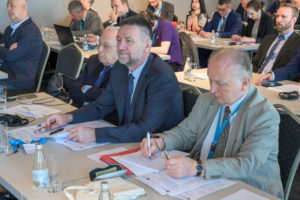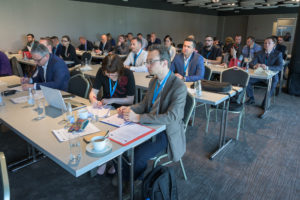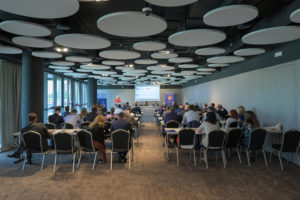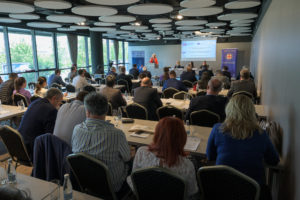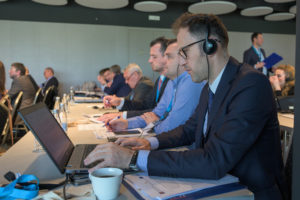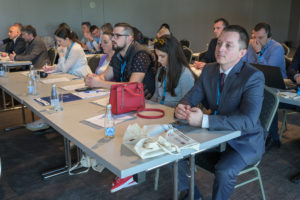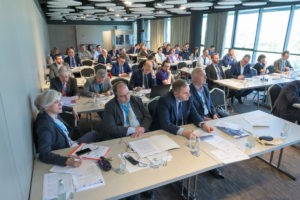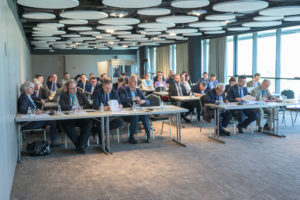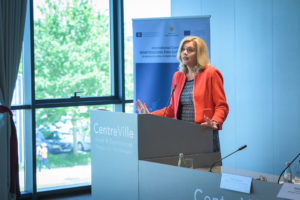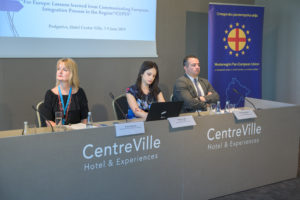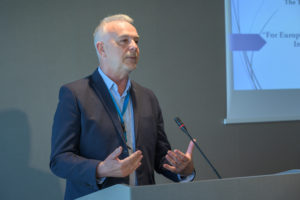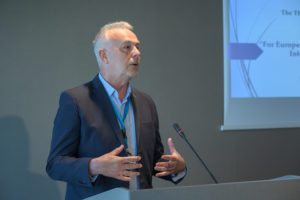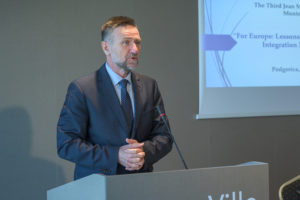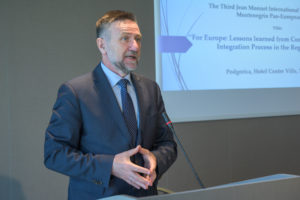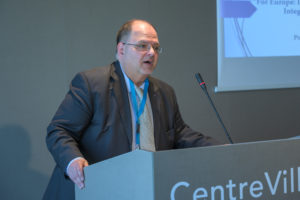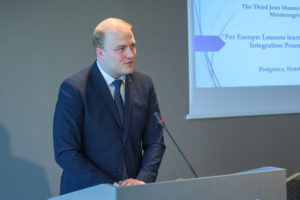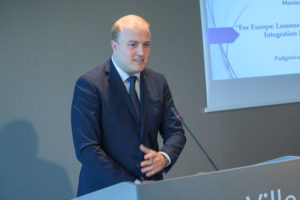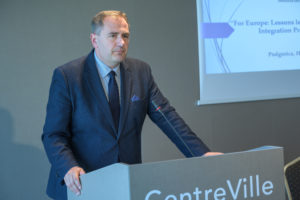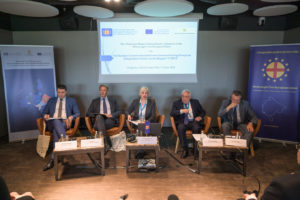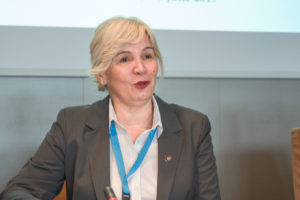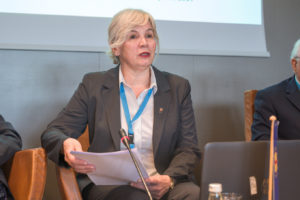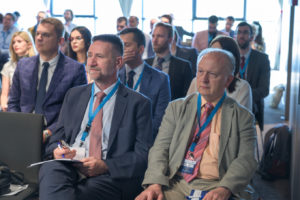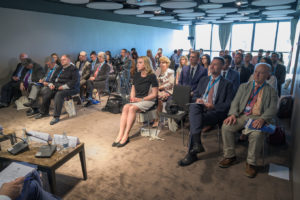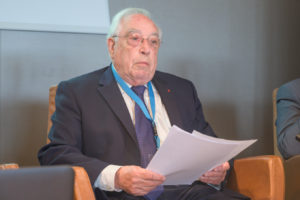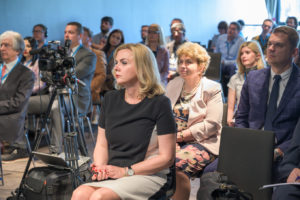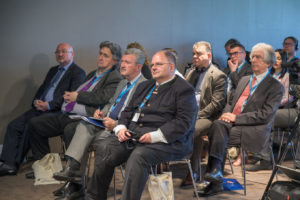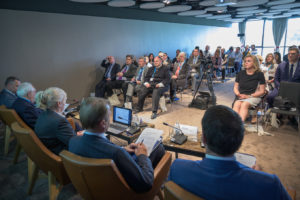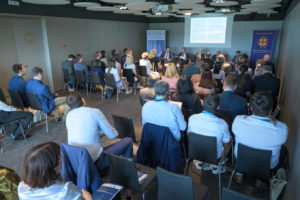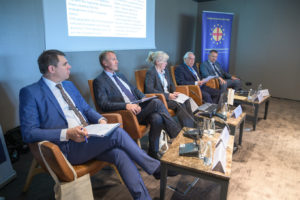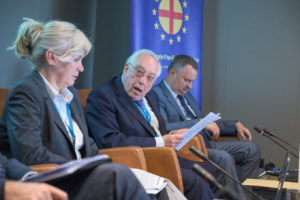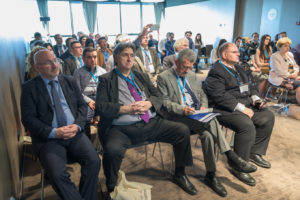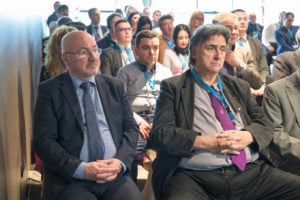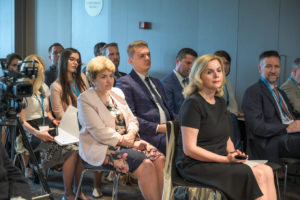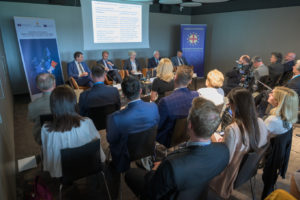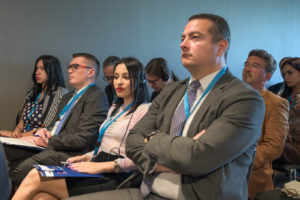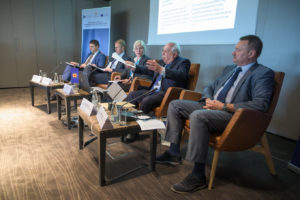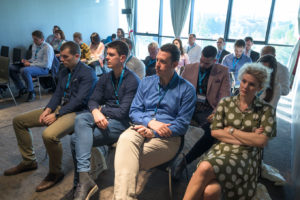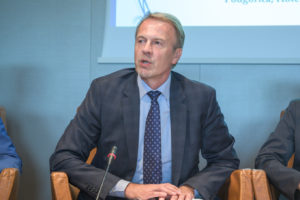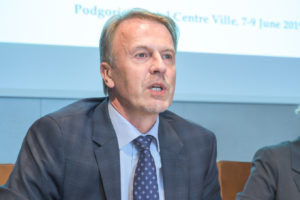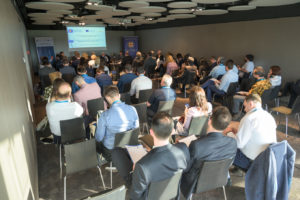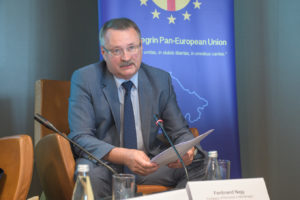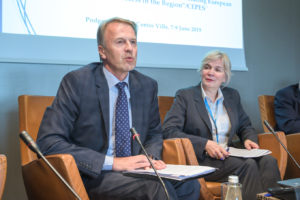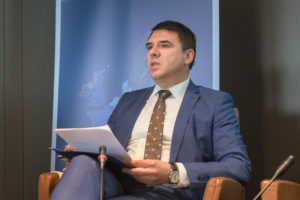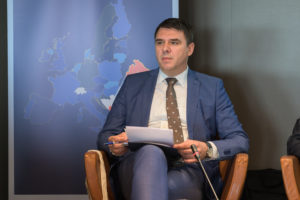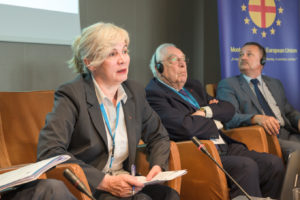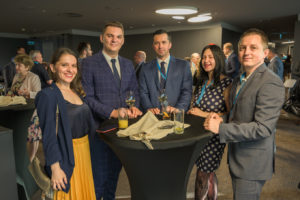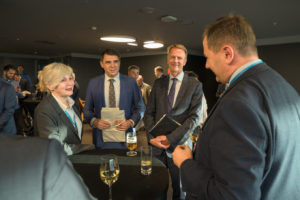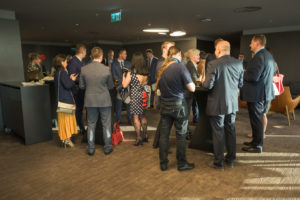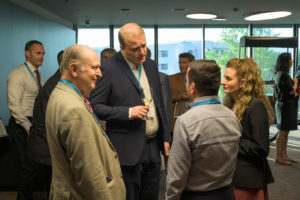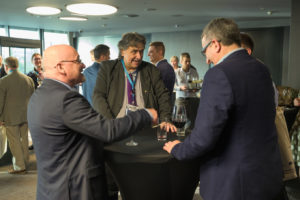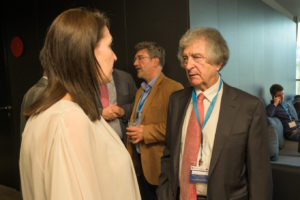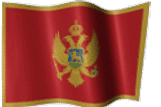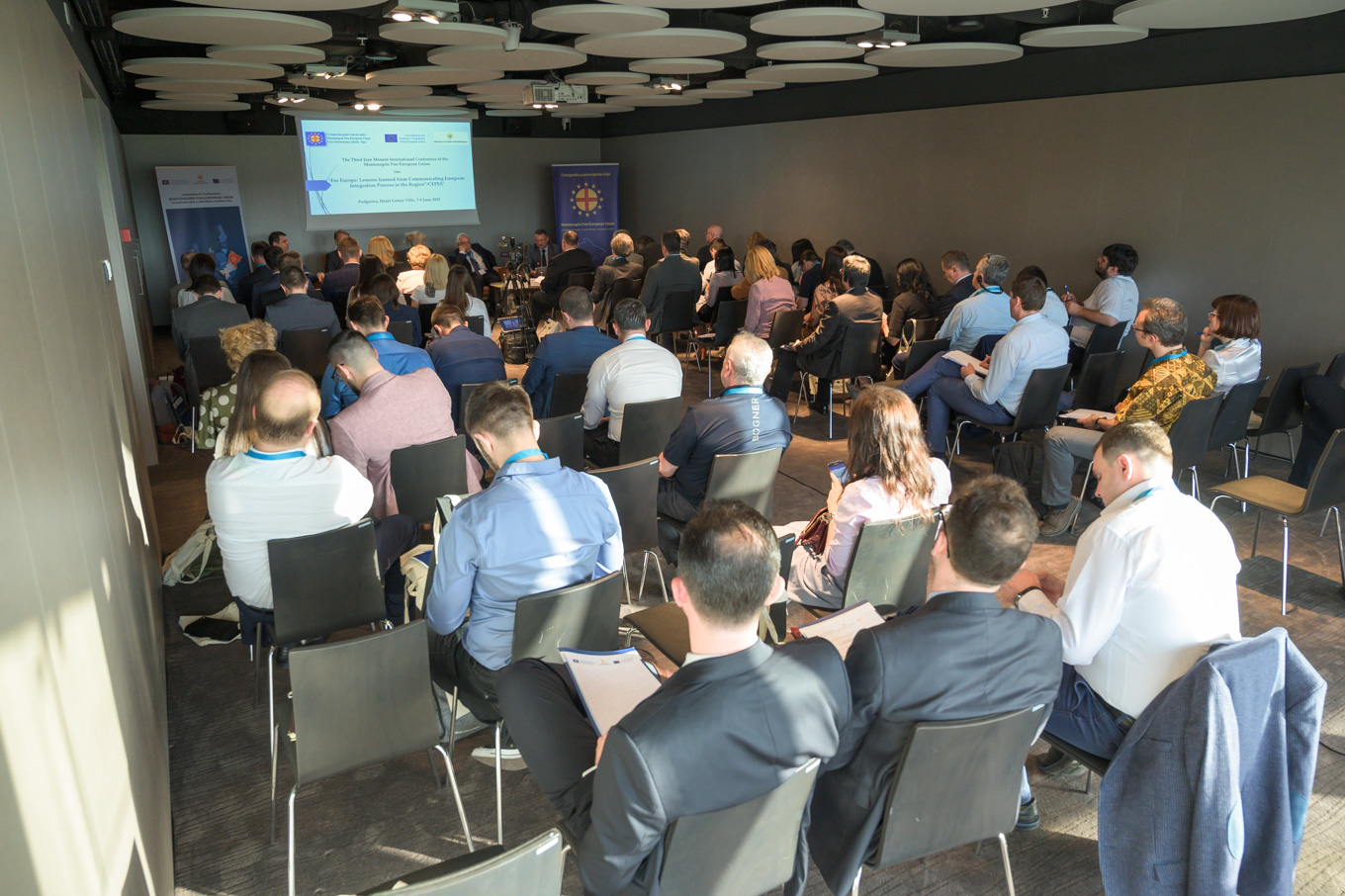Podgorica, (MINA) – The European Union (EU) has to consolidate in order to be bigger and stronger and integration of the Western Balkan countries will strengthen the stability of the European continent, it was estimated at the opening of the conference entitled For Europe: Lessons Learned of Communicating the European Integration Process into the Region, which was held on 7-9 June 2019 in Podgorica. Agenda of the Conference.
The conference was organized in Podgorica by the Montenegrin Pan-European Union within the Jean Monnet Project “Communicating Europe in Pan-European Societies” 2017-2019, and co-financed by the Ministry of Public Administration of Montenegro.
Montenegro’s main negotiator with the European Union (EU) Aleksandar Drljevic said that through the history of the EU, unity policy was recognized as one of the key mechanisms for establishing peace, prosperity and resistance from the conflict, and only slightly later, it received the outlines of a political project which, despite numerous challenges, is being successfully implemented today.
“In today’s context, when the EU is made up of 28 influential countries of the Old Continent, its door is still, I firmly believe,” wide “open to new members, primarily Montenegro and the countries of the region,” Drljevic pointed out at a conference that was held on Friday.
According to him, despite challenges such as the growth of Eurosceptic and nationalist forces, Bregzita, the controversy of the migrant crisis, and other turmoil within the EU itself, it remains a strong economic and political global force that has the core values and best represents the interests of its citizens.
“It is precisely because of the improvement of the overall standard and quality of life of citizens, full membership of Montenegro in the EU is our only and main foreign policy objective, dedicated and determinedly,” said Drljevic, adding that all social actors are diligent to fulfill the obligations defined in the European agenda, and to make joint efforts the best way to do reform processes so far.
He recalled that after seven years of negotiations, Montenegro has opened 32 chapters, three of which have been temporarily closed, while the remaining negotiating chapter 8 – The Competition is expected to be opened this year.
The main negotiator pointed out that in the area of the rule of law, Montenegro has so far significantly improved legislation, established an institutional framework, and that the high level of implementation of the measures from the action plans for chapters 23 and 24 indicates a good dynamics of the negotiation process.
The President of the International Pan-European Union, Alain Terrenoire, reminded that 16 years ago in Thessaloniki, a summit of European heads of state and government was held, pleading for the integration of the Western Balkans into the EU, and that, after the end of the conflict between the people of the former Yugoslavia, that, according to their wishes, they will be able to join the European family.
He pointed out that from this region only Slovenia, Romania, Bulgaria and Croatia were able to join the EU, assessing that for 16 years this is not much.
“With technical and legal problems, which are an official explanation, there are political motives that made EU membership more demanding and time-consuming,” Terrenoire said, stressing that he awaited the longstanding right to full membership in the Union, the peoples of the candidate countries, as well as their political leaders, question the intentions of Brussels and the EU.
He said that he was aware that the internal difficulties in each candidate country had to be dealt with for a long time, and that in some countries there were also the appearance of external influences, which are competitive or even hostile to the EU.
According to Terrenoire, geographical position, historically and culturally, European countries are predetermined if their peoples want to join the EU.
He recalled the situation regarding the celebration of “Day D” in Normandy, stating that “no one is sure whether we will live in peace during this century”.
“Again, we have a kind of cold war that is dangerous and we need to pay attention and confront this information, and for this we need to have a strong and united, not a weak Europe. Efforts should be made to change Europe and its needs for new generations, “Terrenoire said.
The head of the EU Delegation to Montenegro, Aivo Orav, said that communicating the European integration process in the Western Balkans is a difficult task, given the complexity of the processes and the information in the way of communication efforts.
He said that the EU Communication Strategy should clarify what integration brings to every individual, using simple words, local languages and a storyline that is close to every citizen, but unfortunately, there are negative stories about the EU.
“We hear constantly that the EU is in crisis because of Brexit, migration and the last six months due to European parliamentary elections. Everyone in the world knows what is not good in the EU because we are transparent and democratic, and the Union does not know what is wrong in some parts of the world, because these societies remain closed. So, please do your homework, fix things home, then come and help us, “said Orav.
According to him, one of the negative stories about the EU,and that it will ruin and it is not interested in the region, should be opposed to positive stories about the Union and the concrete advantages of the rule of law, freedom of the media, better schools and health systems.
“Independent media is a prerequisite for good and honest public debates that reduce space for bias, narratives that negatively shape perceptions and people’s views about the EU. In that sense, the independence of the Public Service and the media remains of the greatest importance for the EU at all, ” Orav emphasized.
He added that the EU is determined to strengthen the freedom of the media and support and promote independent media.
“In this process we cannot sufficiently emphasize the importance of public electronic services. They bear much greater responsibility than private media and are obliged to inform citizens, provide content that is of public interest, “Orav said, adding that public services must be the leading force in the democratization of societies and that their full independence should be supported.
As another important challenge for communication efforts, the Head of the EU Delegation highlighted the world of misinformation, which, he said, damaged the convictions and the opportunity of citizens to be informed.
Ambassador of Romania to Podgorica, Ferdinand Nagy, speaking about communicating the integration process before joining the EU, said support for the process was extremely high, but that, as Romania moved closer to the Union and the population better informed, it reduced the number of those who supported the entry in EU.
He said that during the communication process, the population of Romania had no idea of the chapters, initial benchmarks and “jargon” of Brussels, nor did they have the desire to be interested in it, but they were interested in how joining the Union would affect them and which directly it will benefit from this process.
Find out that the media were important for this communication and advised the Delegation and the Montenegrin Government to invest in training at least one journalist from each of the main media for communicating information of importance to the EU.
He said that Romania, which chairs the Council of the EU, supports the EC’s approach to the individual assessment of merit-based candidates in terms of enlargement policy.
“We share the Commission’s assessment that the EU must remain a credible partner that respects promises given to candidate countries, which in turn have fulfilled their obligations. The lack of a decision to negotiate with Albania and North Macedonia would lead to various mendacious thoughts about the Union’s support for enlargement policies. We also support the opening of the last chapter for Montenegro that relates to competitiveness, “he added.
MPEU President Gordana Djurovic said that at all three conferences they have so far organized within the project pointed out that better communication is needed for a better Europe, not only for member states and aspirants.
“Only open dialogue on problems and challenges can be made for the European stairs,” said Djurovic.
As another message during the two-day work, she said, she will try to promote greater engagement of the EU in the region.
“We have been waiting for a long time for Brexit, elections and all the European challenges, but now with the new European institutions, we expect that good EU services towards our region will continue. Why not, if necessary, the European Parliament or some other institution, can also be found in the facilitator’s position on certain issues that are important to resolve in our bilateral and internal relations in the region, ” Djurovic said.
She highlighted “more Europe and integration in countries that are culturally and historically long ago in Europe, with a special emphasis on young people” as the motto and message of the conference.
Djurovic, referring to the EC’s communication with which the reports were sent to the countries of the region, said that the EU says the door is open and that enlargement policy is an investment in peace, security, prosperity and stability in Europe and the Western Balkans.
“I think that the message is clear, that this is not only a mutual economic interest and prosperity of the country, but prosperity on the foundations of stability and full integration in accordance with European standards. We are aware that the EU must consolidate in order to be bigger and stronger, and that we must be ready for this process, ” Djurovic said.
She recalled the messages that are often heard from the region – which quality is more important than speed, and stressed that time is a problem anyway.
“We have been negotiating for a long time and therefore we look forward to the autumn in the work of European institutions with impatience. We are ready to continue to devote ourselves to fulfilling our tasks, but we need help to maintain the “working temperature of reforms”, Djurovic said.
She believes that for Montenegro, as well as for Serbia, now the biggest challenge is to get the final benchmarks for the rule of law, in order to be a turning point, which would show the end of the accession process.
Djurovic said that Montenegro and Serbia are leaders in the integration process, but that special assistance should be addressed to countries that have the most open problems (Bosnia and Herzegovina, Kosovo and Albania) and should not be forgotten.
The conference continued on Saturday with panels on European future and youth, EU perspectives and challenges after European elections, as well as regional challenges on the road towards the Union.
The European Commission (EC) has to reaffirm its obligations and goals and that the merit-based process of accession should continue and express a clear readiness to absorb the Western Balkans, was announced at a conference of the Montenegrin pan-European Union on the second day, on Saturday June 8.
Member of the European Parliament (EP) from Croatia, Zeljana Zovko, said at the panel of EU prospects and challenges after the EP elections that the Union was going through a better phase of what was expected, given the fear that the populists will prevail in the elections.
She said that after the migration waves that came to the Balkan route, the idea returned that the Western Balkans required a new strategy, while the fears of instability caused the refugees to return the focus of Europe to that area.
Zovko said that the European People’s Party has candidate for EC President Manfred Weber, who, in her words, knows what it means for the stability and peace of Europe if the enlargement does not continue, and the messages are not encouraging.
“I think that the future policy discussions of the future EC on these issues will be a determining factor in analyzing the influence of third countries, which are quite accessible here,” Zovko said.
In order to gain support for further struggle for enlargement, she said positive messages of dialogue and reconciliation, not victims, positive messages of compromise and positive media inscriptions, and not those that very often intimidate European decision-making centers, are needed.
Zovko said that for a long time the justification of some politicians and the international community was worked through the creation of constant crises, adding that, if there are constant crises and confrontations in some countries and send such messages, and then it loses every argument why the EU would receive those countries.
“If pedagogy does not occur within the country itself and does not find the reason that these countries” sell “to Europe as a potentially healthy society, which will contribute to the EU, it will be extremely difficult to sell the same story to societies that are afraid of the presence of new, cheaper workers “Said the European Commission.
She said that the EC is one of the largest financiers of the countries of Southeast Europe, but has the worst communication strategy, adding that the story and communication of European integration must be mutually acceptable, i.e., to go from EU and candidate countries.
“And that’s not Brussels. Berlin and Paris will have to decide whether they are for enlargement and when it will be. We see that it is the last one on the list in these reviews. To put it first, we need to work on a communication strategy to improve the image and the whole story so that we do not leave this area to countries that are looking to settle here, “Zovko said.
When it comes to European integration, she said that Montenegro is the best student, but that everything can change.
“Do not be encouraged with some compliments. It is necessary to constantly work on protecting Montenegro from what can happen overnight, which is fatigue and the search for a middle-road once the EU itself leaves space for those whose vision we would not accept, “Zovko said.
Jozo Rados, a member of the EP of Croatia, said that, after the elections, a good thing is that, with the growth of the right and the Euro-skeptical tendencies in the EU, there is still a stable majority of pro-European oriented forces.
As he said, the fact that four pro-European political groups are addressed to one another can have a positive effect on the future EU policy.
Rados said that it is difficult to expect any major breakthroughs in EU foreign policy, since it is trapped in global international political strategic relations and difficult from such relations can arise for internal reasons.
He said the EU could step forward from China, but it is difficult to expect a breakthrough in relations with Russia, while it is difficult to say what will happen to America.
Rados emphasized that the issue of enlargement is important, and that the EP has done a lot in the past years, and for the first time it was clearly felt that the EU’s enlargement to the countries of the Western Balkans is an interest of the Union.
“But apart from the good EC and EP policies, which are likely to continue, the role of the EU’s external political issues is enlarged, and there was no willingness on their part, and it is hard to expect that it will continue to take a strong political leadership and speed up the process, to put political focus on enlargement, stabilization and creating a space of stability instead of the threats and impacts of others, “he said.
Rados does not think that, after European elections, the EU is at a special moment, a turning point.
“It always had its difficulties, open issues, congestions, problems. I do not think anything spectacular will happen. I do not think there is a real alternative to strengthening the EU in those areas and the pace that is real, “Rados said.
Secretary General of the International TEU, Pavo Barisic, said the EP elections showed that the EU does not want further disintegration than integration.
Speaking about the enlargement, he recalled the statement by Commissioner Johannes Hahn in the latest report that the enlargement negotiations of the countries of South Eastern Europe will be the most important strategic EU agenda in the next term.
“At the end of this enlargement exam, Europe confirms whether it can lead to a stability policy, or whether Europe can export stability or import instability,” Barisic said.
He believes that Europe needs to be economically, politically, culturally and defensively strengthened, developing a common geo-strategy.
“Now after the European elections, it is crucial to strengthen defense power and democratic institutions. The elections were one of the pivotal moments in the development of the EU, and now reforms are needed. It is necessary to reform the Union and it is best to start with the strengthening of democratic institutions, building the European public, and it is necessary to strengthen the cohesive force and to reduce the differences among the parts of the EU, ” Barisic said.
He stressed the importance of European communication, stating that EU countries can cope with all the challenges that will follow.
“A strong and solid Europe, which can defend its citizens, is a significant supply of peace and stability in the world”, Barisic said.
Vice President of the Pan-European Union of Germany, Andreas Raab, said that this year’s European elections reflect the existing policies of Europe’s tendency, where traditional parties are losing their power, while the new ones gain greater space on the political scene.
He said that every five years the European institutions will meet with the new composition, and when it comes to the countries of the Western Balkans and Southeast Europe, he pointed to the importance of the reporters for these countries.
A member of the Presidency of the International TEU, Andrej Lepavcov, reminded that last year a new enlargement strategy was given and that the EU, after 15 years, decided to dedicate itself to the enlargement, thanks to the Bulgarian presidency.
He said that during the Berlin process there were many meetings of the leaders of the Western Balkans, but that does not mean that there has been an automatic progress in the process of expanding integration.
“At the moment, we have an EC that ends the mandates, and is trying to convince some countries of Europe that the enlargement process must continue, despite facing certain challenges. We need to see what the real intention of this reintegration is and whether the EU will use the power of its transformation for the countries of the Western Balkans, ” Lepavcov said.
He said that the Berlin process was played when countries turned to themselves and became deeply divided over migration, adding that the process had positive outcomes, but that the EU did not provide enough resources to neutralize the effects of years of communist rule in the region.
Lepavcov said that Montenegro as well as Serbia, which are leaders in the process of integration, complained about the slow negotiation process, and assessed that, if so, the pro-European public in those countries will become increasingly nervous.
As he said, it is still uncertain that during the new composition of the EC, the enlargement process will be strengthened.
“I would say that there will be no enlargement in this mandate. After these elections, which did not make such big changes as expected, the EC must reaffirm its obligations and goals and says the process of accession-based merit should continue and express clear readiness to absorb the Western Balkans, ” Lepavcov said.
Stefan Habock of the Pan-European Union of Austria believes that after the election, there will be no major changes in the policies of the EC and the EP regarding the enlargement of the EU.
“The position of the EC and the EP has always been clear – they want and support enlargement. But the problem when it comes to this process is the EU Council. There are some countries, France and the Netherlands, which block any initiative that would bring six Balkan states into the EU, ” Habock said.
He believes that the problem is that there is no real understanding of history, the need for people in Southeastern Europe, the post-war situation, and that some countries in Europe do not know how it used to be in Yugoslavia, and how the former Yugoslav countries have developed.
Habock said that the problem is that, unjustifiably, there are arguments against the enlargement, such as the costs of integration, the fact that Bulgaria and Romania have entered the EU too quickly, that young people from the new members will take over the jobs.
He said that the peoples of the countries of Southeastern Europe should be part of the EU because they are Europeans and have the right to do so.
Finally, the conference participants adopted a Declaration advocating for Europe through better communication, stronger engagement in the region, European integration of the countries of Southeast Europe, with a focus on young people and a more stable and integrated region.
“We expressed our willingness to support better communication on the process of European integration between European institutions, member states and candidates and potential candidates of the countries of Southeastern Europe in order to support the dynamics of the integration process of Montenegro and all countries of the region towards the European Union,” the participants said.
In the bloc dedicated to regional challenges, following speakers addressed the audience:
Mislav Jezic, President of the PEU Croatia
Osman Topcagic, President of the PEU of Bosnia and Herzegovina
Vojislav Mitic, President of the PEU of Serbia
Arian Krasniqi, President of the PEU Kosova
Ales Lampe, Vice president of PEU Slovenia
Klevis Limaj, Secretary General, Pan-European Movement of Albania
Gordana Djurovic, President of the PEU of Montenegro
On the other hand, Youth of the Pan-European Union discussed the role of youth within the European Union, as follows:
Ljudevit Fran Jezic, Youth of the PEU of Croatia
Charles Steiner, Youth of thre PEU of Austria
Milica Muhadinovic, Youth of the PEU of Montenegro
